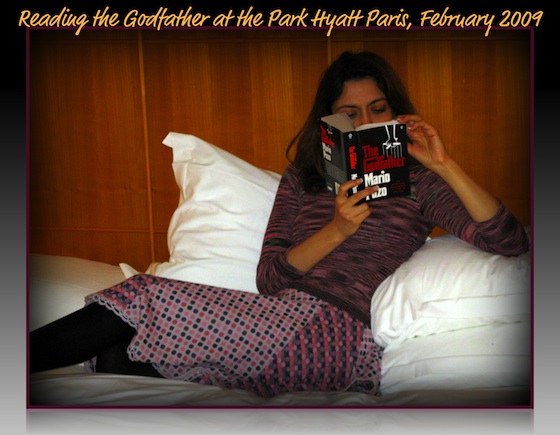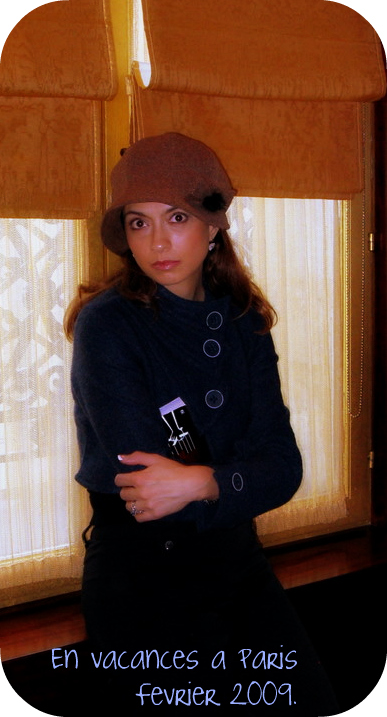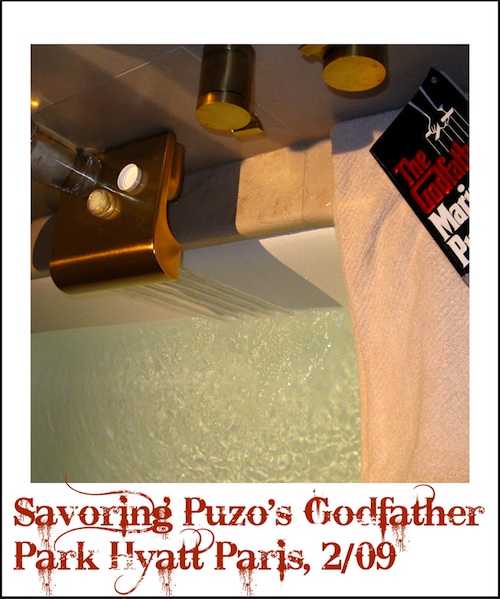
Ageless movies are boldly ignorant of the passage of time. The past and the future merge in the permanence of a timeless story. Years and decades pass us by, we grow up and grow old, and yet these movies only become more enduring with time. The Godfather story is insurmountable, it is beyond a classic, it is unashamedly ignorant of cultural, geographical or age boundaries – it resonates with all of us and has so ever since it first appeared in print in Mario Puzo‘s epic novel in 1969.
Nino Rota‘s world famous main theme song is etched in the depth of my memory from my childhood days when the music filled my grandparents’ house in Iran. My grandfather loved the movie and music and from that tender memory, the Godfather has held a special place in my heart all my life. I knew the music many years before I watched the movie first, and that came many years before I read the novel. Now, and only now, after reading the novel do I understand why he loved this story so much and why he repeatedly watched and listened to the music. Now I feel closer to my grandfather and marvel at his taste in what I find to be a remarkable story. How I wish he could be here today to tell me his thoughts on the Godfather, now that I can appreciate it. We may express the gratitude we feel toward our families while we have the chance, but why is it that the true understanding of that gratitude often greets us bitterly late in life?
The ingenuous story and remarkable characters aside, the writing of Mario Puzo is of highest quality. Puzo’s novel speaks to every reader from every walk of life, and evidently through different generations. It runs through themes understood by all humans: family and brotherhood, sacrifice and justice, trust and betrayal, revenge and retribution, business and friendship – friendship that the Godfather held so tenderly and seriously, friendship that he offered openly and generously, friendship in the name of which he offered favors and collected them in due time. In the core of this magnificent story is Mario Puzo’s writing. On the surface, it mostly appears to be a crime novel with grotesque scenes and unhappy outcomes but it is only the surface.
The writing is solid, authentic, lustful and obsessive through and through – it takes your imagination into the scene, it places you inside the situation with the character and it demands that you fully partake in the intensity of every moment. The story endures and the writing of this remarkable author is the solid foundation of support which upholds it.
“Amerigo Bonasera sat in New York Court Number 3 and waited for justice….”
And so we enter the under world of Italian immigrants in New York city. We encounter characters we can never forget. The depiction of these unforgettable characters – Luca Brasi, Tom Hagen, Sonny Corleone, Kay Adams, Johnny Fontaine – while secondary to our main characters, paints a permanent picture before our eyes in the hands of Mario Puzo’s masterful prose. Through these characters, we get to know our heroes, Don Vito Corleone as the head of the Corleone family and business, and the mastermind of the ingenious mafia world, and Michael Corleone, the Don’s favorite son, who refuses to follow in his father’s footsteps, joins the army and keeps a distance from the family, until one day in the deep countryside of Sicily, he meets his ultimate fate. Perhaps, in its essence, in its very core, the Godfather is a story about father and son and their undeniable bond, which can be weakened but not broken, in the company of family loyalty and devotion reciprocating that of the Corleone family.
“I will reason with him.” – Don Corleone’s famous motto, a phrase that, when used, immediately translated to Tom Hagen, his consigliere, that the Godfather will not be persuaded otherwise, and that it would be in the best interest of the opposing party to acquiesce to Godfather’s terms because no matter what terms presented to them at this time, if they should fail to agree, it would most certainly be subject to harsher circumstances.

Don Corleone is not a criminal man in his own world. He is a gracious, reasonable and honorable man. He has earned the respect of his family, his community, his workforce, the entire immigrant population from Italy, and all who know him through his distinguished reputation. When he first came to America, for the young Vito, this was the dream land of opportunity at a time when jobs were scarce in Sicily and the government was to be feared and not trusted. He wore out his welcome quickly in America. He soon realized that the government and the authorities do not exist to protect him, to grant him justice in the face of adversity and to act in his best interest. They exist to protect the law, which often is lacking in reason and circumstantial exceptions.
The young Vito’s turning point in life comes to him in the early days in America, when recently armed with this bitter knowledge, he had to protect himself against the corrupt and feared Fanucci in New York’s Hell’s Kitchen. Vito Corleone makes the simple, logical, ingenious decision on the fate of Fanucci, and subsequently the fate of all those families and businesses from whom Fanucci extorted money for nothing in return. That marks the day when he realizes his own fate in life. He begins to believe that every man has one fate, something Michael always remembers about his father but does not fully comprehend until his hideout in Sicily later.
The obsession and the reverence of the Godfather is stunning and undeniable. He is worshiped on a massive scale, and yet by society’s measures, he is a first rate criminal. Even as he commits the most heinous crime in all of the story, that of beheading of Khartoum, the magnificent horse belonging to Hollywood hotshot Woltz and the symbol of all beauty and innocence, the Godfather stands tall and respected. It is all understood and forgiven him as part of the business, necessary to reach certain goals and to protect certain interests. It is the legendary Marlon Brando performance engraved into a rock in our memory – standing erect and powerful, commanding his world and bringing justice where none can be achieved by society’s standard measures.
Reading is the best pastime for an active mind! If you like to see the other book reviews, check the index of In Print.
The ethics of Don Corleone come to surface as he is first approached by Sollozzo, the “Turk” about the drug business. It makes perfect sense to get engaged in trafficking drugs as a guaranteed measure to long-term power and money. Tom Hagen lays it down clearly: If we do not get into it, someone else will. If it is not a main stream of income in the families now, it will be in 5 years, 10 years down the road. We must act quick, Tom tells the Godfather. Sonny, with his short and quick temper, makes a fatal mistake during the course of these negotiations by disagreeing with his father during the meeting with Sollozzo – words that have no doubt made a proud mark on the American pop culture when the Godfather tells him never to let anyone outside the family know what you think. Yet despite the advice of his consigliere and his most likely successor, Sonny, the Godfather stands strong if alone in refusing to engage in drug business on ethics and brilliant business vision.
This decision along with Sonny’s foolishness to speak up at the Sollozzo meeting costs the Godfather 6 bullets. Even so, these bullets do not even come close to matching the merciless gunning down of Sonny that later follows. These harsh blows to the most powerful man in all of NYC at the time raise intensity among the mafia world, and yet the Don refuses to act on this with justified vengeance. It is with unwavering belief and rock-solid ethics that the Godfather then delivers a most unforgettable speech to the five Italian families in hopes of truce on the drug business. The judges and senators that hold his friendship dear would no longer wish to be associated with him if the business graduated from the small petty crimes around importing and exporting of olive oil and other goods, gambling, prostitution – a favorite of Tattalias – to a seriously debilitating substance. In all of this, he stands alone as visionaries often do.
When all hell broke loose after Godfather’s shooting and his hospitalization, it took a mastermind planning session between Clemenza, Tom Hagen and Sonny and Michael to arrive at the perfect solution. It was risky but the only way to handle the situation and it was for Michael to kill the slimy NY cop, McClusky, and the head of drug business, Sollozzo, in a public restaurant. Michael flees overnight to a hideout in Sicily, and waits for the smoke to clear to come home. It takes almost three years before he is able to safely return home – during which time the Godfather tells Hagen every day “Remember to use all your wits for a plan to bring Michael home.” But it takes the genius of the Godfather’s sharp mind, even in his weakened condition, to find the only legitimate way to realize this – and that brings us to the story of Felix Bocchichio. This was omitted from the first movie but brilliantly told in the book. The Bocchichio family are the primitive borderline hostile generation who would take revenge – an eye for an eye – if anything were to happen to their clan. For that reason, having a Bocchichio hostage or having one arrange a meeting is absolute insurance on the impartial validity of the matter. And it is through a misfortune of the Bocchichio family that Michael is able to return home.
When Felix Bocchichio has his wake-up call after the ruthless way in which his colleagues betray him, he has to pay for a crime he did not commit. After he served his term and was released, he shoots his enemies dead in broad daylight, and waits to be arrested. It is impossible to find a way out of this mess for Felix Bocchichio. The genius of Godfather arranges for Felix to confess to the murder of McCLusky and Sollozzo, for an exchange of large pension to his family for life. Felix confesses and Michael comes home at long last. The recurring theme of taking care of one’s family in exchange for a ‘favor’ to the Godfather is renewed at the turn of every page in this book.
Some of the sub-plots running through the Godfather, non-central to the overall theme and missing from the movie, still make up my most cherished parts of this genius story. The indelible, lustful, raw passion which Lucy Mancini and Sonny enjoy for a short while is on top of that list. Even the sweet brief romance of Michael Corleone and his first wife, the Italian bella Apollonia, deliciously described as it was, pales in comparison to the passages imparting the details of Sonny’s wild affair with Lucy. Mario Puzo proves no less a gifted author in his creation of the erotic love scenes between the impassioned lovers. The love making is predatory as Lucy and Sonny devour one another with voracious appetite. When Sonny dies, Lucy’s whole physical being aches for him, a loss and a wound that Sonny’s wife is far from experiencing.
With the move to Vegas, thanks to Hagan’s arrangements to take care of “extended” relations of Sonny, Lucy embarks on a new life and adventures, including the nature of her relationship with Jules. Large or small, Puzo takes the time to first develop his characters fully – even if in isolation of others – and then to carefully weave each into the central plot. There is a reason and time for each character to play their part, pay their dues, return a favor, or bestow an act of friendship to the Godfather. The Don, the mastermind of Mario Puzo’s creation, is the only one who knows well in advance of others – and that includes the reader – how and when each chosen one will be called to action.

From the wide spectrum of the compelling personalities at his finger tips, Mario Puzo affords way too much time to developing that of the wasteful, whiny, incapable Johnny Fontaine, the Godfather’s Godson. If there is a more insufferable type in all of the Godfather, I must have missed the chapter – because Johnny Fontaine is it for me. To my disappointment, we delve into Johnny and peel layer after layer into his life, his career, and his psyche. The irony surrounding the deep love the Godfather feels for Johnny is blatant. He makes heaps of mistakes, but he also destroys the one singular value held of highest regards in the eyes of Don Corleone, that of family: He divorces and abandons his Italian wife and family in his drunken and desperate stupor of dealing with fame. Still the Don continues to love and support his Godson unconditionally. It is for the undeserving Johnny Fontaine that Jack Woltz pays dearly in the beheading of Khartoum, the finest, priciest, and rarest racehorse in the world.
All of this sacrifice for the sacred bond of the Godfather to Godson relationship – one held very high in the eye of a Sicilian man – a bond for which the Godfather murders and destroys anything and anyone in order to protect. A sacred bond ever so wasted on a man such as Johnny Fontaine.
As a novelist and a masterful story-teller, Mario Puzo is gripping in every passage, every chapter and every book (total of 9 books in The Godfather). Movies 1 and 2 are no doubt classics of our time, and tightly capture the essence of the novel. Timeless movies as they be, with unforgettable theme music to pull us in even deeper into the elusive ways of the Italian mafia underworld, it is the writing that I prefer. It is in the riveting passages of Mario Puzo’s original book that his characters come alive in more riveting shapes and colors, although I admit that it is impossible not to associate them with the actors that have burned those names into our memories since the original Godfather movie.
The Godfather is a masterpiece and a classic, and a story that once read and consumed, leaves its readers and viewers changed permanently.
 I am Farnoosh, the founder of Prolific Living. So glad you are here. My mission is to empower you to unblock your creative genius to live your dream life.
I am Farnoosh, the founder of Prolific Living. So glad you are here. My mission is to empower you to unblock your creative genius to live your dream life.